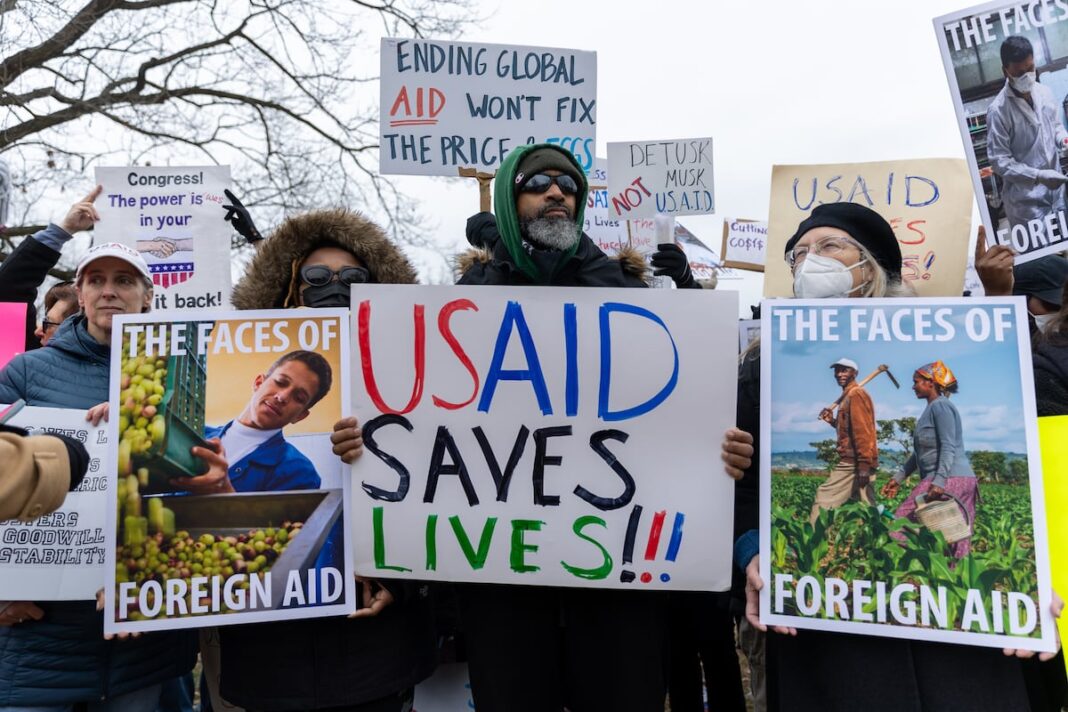The Global Impact of Economic Policies: A Deep Dive
A Grave Report from The Lancet
The medical journal The Lancet recently published a startling report detailing the devastating effects of economic turmoil instigated by the policies of former President Donald Trump. This analysis, focusing predominantly on the role of the U.S. Agency for International Development (USAID), highlights the real-world consequences of cuts to foreign aid, especially for some of the world’s most vulnerable populations. The study poses a harrowing statistic: the agency’s reductions could lead to an estimated 4.5 million deaths among children under the age of five. This is not merely a number, but a reflection of lives intricately tied to international aid programs that have historically saved millions.
The Role of USAID in Global Health
Over the last two decades, USAID-funded health initiatives have been instrumental in averting more than 91 million deaths globally, which includes a staggering 30 million children’s lives. These programs are far more than just financial allocations; they embody a commitment to humanitarian efforts aimed at promoting sustainable growth and addressing dire health crises. The potential cuts threaten to undo decades of progress, reflecting not just a bureaucratic decision but a moral failing towards those in dire need.
Rising Poverty Rates
The ramifications of these economic policies are echoed in the World Social Report 2025 released by the United Nations. The report is a stark reminder of the precarious state of global poverty, highlighting that over 690 million individuals live on less than $2.15 a day. Furthermore, it indicates that more than 2.8 billion people—over a third of the world’s population—exist on daily incomes between $2.15 and $6.85. These statistics paint a grim picture of inequality and raise urgent questions about our collective responsibility in tackling these challenges.
The Disproportionate Impact on Low-Income Countries
Accompanying these alarming statistics is a commentary on the dire situation in low-income countries, where weak economic growth coupled with cuts to external financing and international aid continues to hinder progress. These nations often rely heavily on official development assistance, which is a significant part of their gross national income. The cuts to subsidies and concessional loans threaten to exacerbate their already fragile economies, pushing them further into the abyss of poverty and despair.
Economic Theories and Real-World Consequences
This distressing situation recalls the theories of economist Karl Polanyi outlined in The Great Transformation (1944). Polanyi argued that the self-regulation of markets tends to fail, particularly in times of crisis. After World War II, it was envisioned that a market economy would serve the broader objectives of full employment and social security, supported by a system of redistributive taxation. However, the disintegration of these ideals over the decades has led to rampant inequality, austerity measures, and increased national debt.
In recent times, focusing on the role of governance, Kari Polanyi-Levitt—Polanyi’s daughter—has emphasized that a balance was once restored through social control mechanisms over the economy. Yet, the resurgence of unregulated economic liberalism has paved the way for systemic failures, revealing the vulnerabilities within our global economic framework.
A Call for Democratic Resilience
As the world grapples with these escalating issues, it is crucial to recognize the interconnectedness of political decisions and their societal impacts. The acceleration of issues, including the dismantling of international organizations and regulations under Trump’s policies, poses grave threats to global stability and equity. The urgency for democracies worldwide to reclaim agency and address these daunting challenges has never been greater.
In light of this complex tapestry of economic, social, and humanitarian factors, the conversation must examine not only who governs and how but also the fundamental values that should guide us in addressing global economic disorder and fostering a more equitable world.



